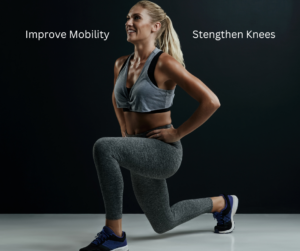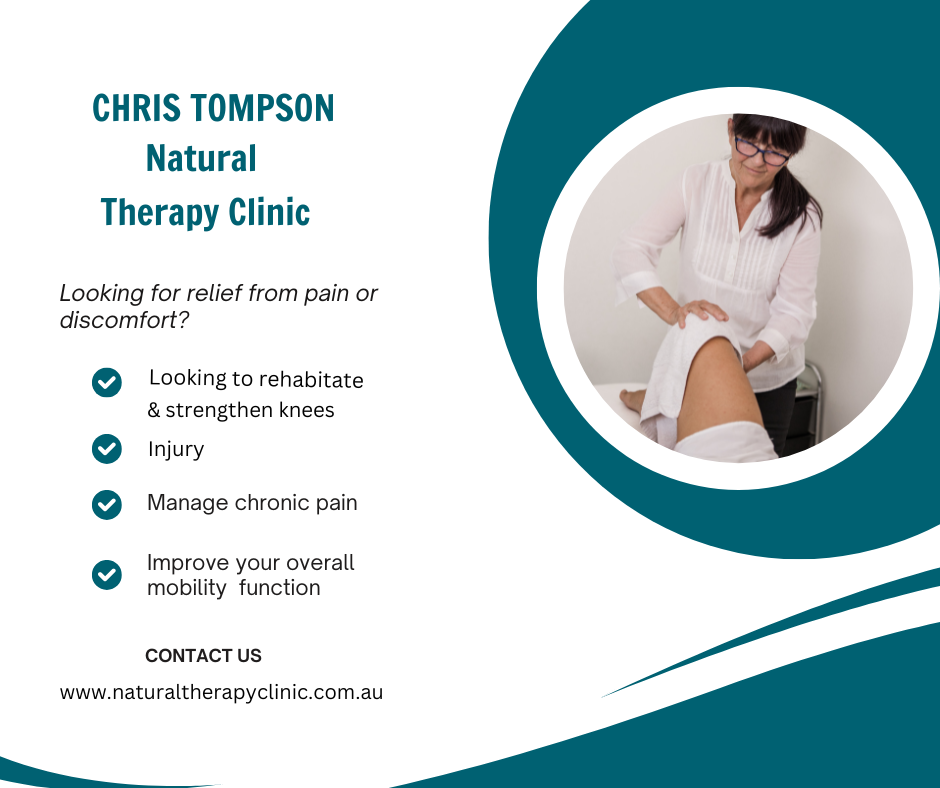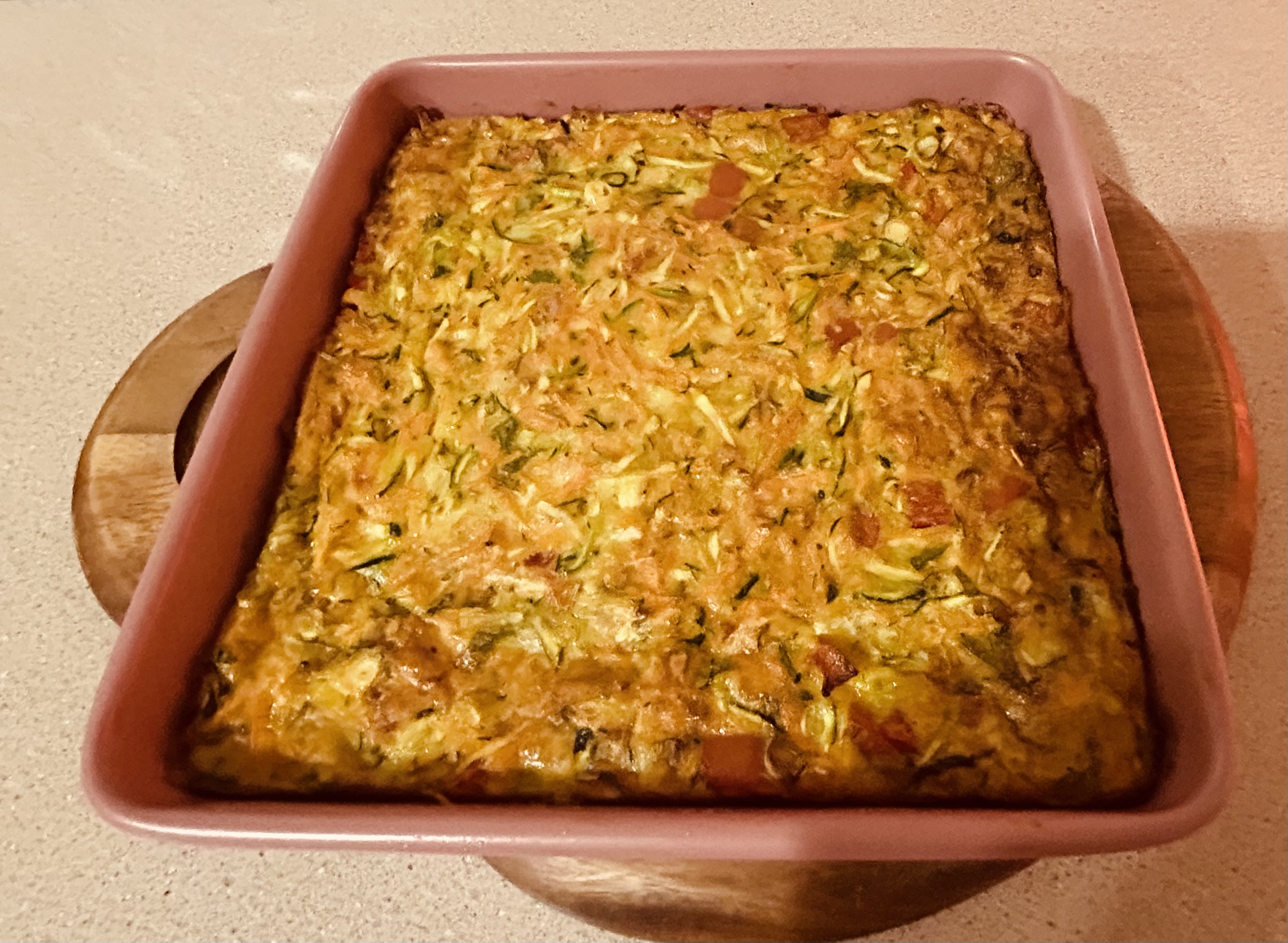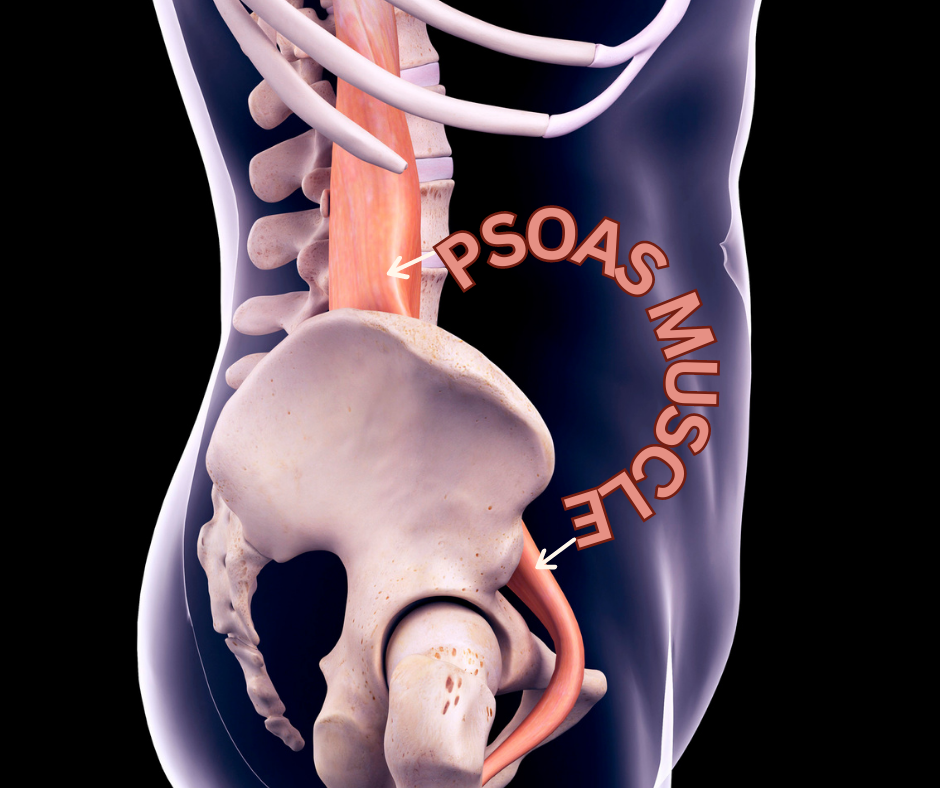Knees provide stable support for the body & allow the legs to bend & straighten. The knee is the largest joint in the body & is easily injured. This is why it is extremely important to look after our knees, below are some exercises to rehabilitate & strengthen knees as well as information on causes & injuries of the knee.
The knee has 4 main types of tissues: bones, ligaments, cartilage & tendons. Any of these important types of tissue can be damaged through injury.
Common knee injuries include:
- Sprain (an over-stretching of ligaments in the knee)
- Torn ligament, such as a torn anterior cruciate ligament (ACL) or posterior cruciate ligament (PCL) https://medlineplus.gov/ency/article/001074.htm
- Strains (over-stretching of muscles and tendons)
- Damage to the cartilage that lines the knee
- Torn meniscus (the cartilage between the shinbone and thighbone) https://www.hopkinsmedicine.org/health/conditions-and-diseases/torn-meniscus
- Irritation to the kneecap joint
Less common injuries to the knee include:
- Fractures (usually caused by sudden trauma or a direct blow, twisting, or falling on the knee)
- Kneecap dislocations
- Knee joint dislocations (uncommon as it requires a great force)
Rehabilitate & Strengthen Knees exercises:
Rehabilitate & Strengthen Knees exercise program includes exercises that have been shown to be beneficial for people with knee osteoarthritis. The exercises aim to improve the strength of certain muscles that will provide better support for the knee during walking & other tasks. Stronger muscles help to cushion as well as support and protect the joint. Stronger muscles also make it easier to perform many daily activities, such as standing up from a chair.
Squats:

- Stand with feet a little wider than hip width, toes facing front.
- Drive your hips back—bending at the knees & ankles and pressing your knees slightly open
- Sit into a squat position while still keeping your heels & toes on the ground, chest up & shoulders back.
- Strive to eventually reach parallel, meaning knees are bent to a 90-degree angle.
- Press into your heels and straighten legs to return to a standing upright position.
Wall Squats:
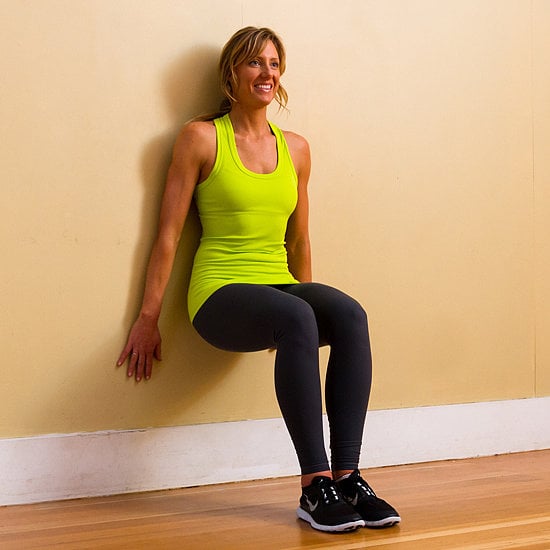
- Stand with your back against a wall, placing your feet about two feet out in front of you. Feet should be hip-distance apart.
- Bending your knees, slide your back down the wall until your knees are at 90-degree angles. Your knee joints should be over your ankle joints, so you may need to inch your feet further from the wall to create proper alignment. Your thighs should remain parallel.
- Hold for 30 to 60 seconds & then stand up. Repeat for a total of three reps.
- To make this move more challenging, alternate between lifting your left heel for a few seconds & then your right. This helps to target your calves.
Step-up:
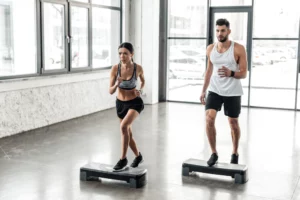
- Stand directly in front of the long end of the step.
- Step onto and off the step one foot at a time.
- As you’re doing your step-ups, keep your back straight and make sure your foot is planted completely on the step.
Note: If you have a week knee or a weak side of the body then you need to strengthen that side by only stepping up & down on that knee.
Stretching exercises to rehabilitate & strengthen knees:
Knee pain can have various causes but is typically due to a muscular imbalance. “One muscle group may be a little stronger or more overworked than another muscle group,” so is very important to rehabilitate & strengthen knees by the appropriate stretching exercises.
Hamstring Stretch in Long-sitting: 2 reps, 30-sec hold, 1 set
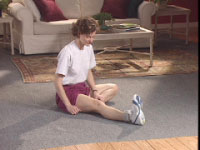
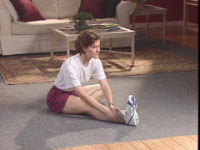
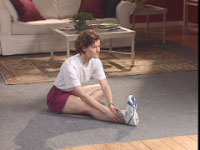
Quadriceps Stretch in Standing: 2 reps, 30-sec hold, 1 set
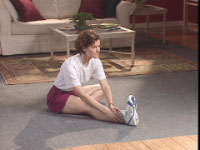
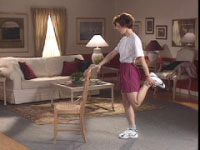
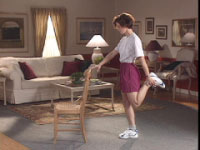
Straight Leg Raise in Supine: 10 reps, 1 set
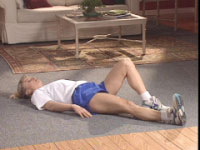
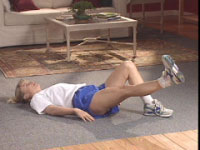
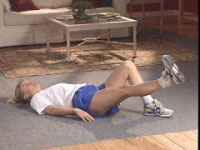
Straight Leg Raise in Supine: 10 reps, 1 set

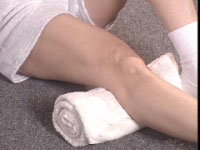
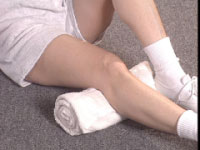
Illio-tibial Band Stretch: 2 reps, 30-sec hold, 1 set
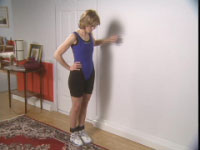
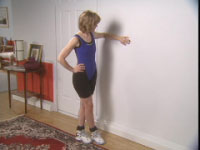

Summary:
Different exercise interventions, aerobic exercise, which alleviates pain and improves physical function, is the most widely used. Strength training is the most effective exercise therapy against muscle weakness. Neuromuscular exercise & balance training are the best exercise training options to improve proprioception, sensorimotor control, and functional stability. Aquatic exercise has fewer side effects than other exercise training, more & more people are trying aquatic exercise. In addition, many traditional exercises, such as Ba Duanjin, Tai Chi, Wuqinxi & Yoga are gradually being used to treat knee injuries.
Also a Myorthotics treatment (soft tissues adjustment) can help immensely to improve knee issues. https://www.nutritionalhealthenterprises.com/myorthotics/
But remember, exercise that rehabilitate & strengthening knees are extremely beneficial long term.
